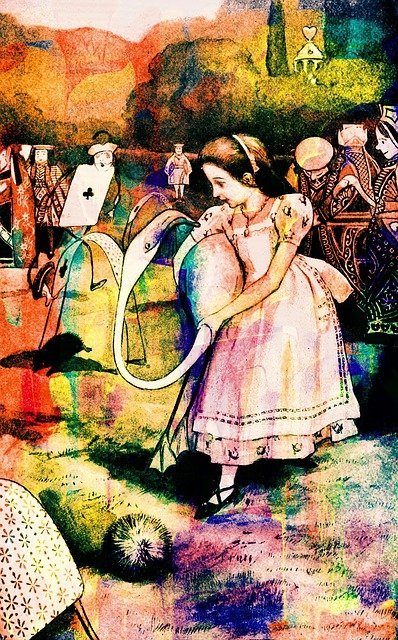 An author researches many topics along their writing journey. With my current work-in-progress set in the second half of the nineteenth century, my curiosity was stirred about children’s party games (and adult parlor games, too). Alice in Wonderland was written in 1865. An outdoor party game was croquet. You can learn about its history here.
An author researches many topics along their writing journey. With my current work-in-progress set in the second half of the nineteenth century, my curiosity was stirred about children’s party games (and adult parlor games, too). Alice in Wonderland was written in 1865. An outdoor party game was croquet. You can learn about its history here.
Many games today are the offspring of early parlor games. You’ll find a list of them here. How many do you recognize, at least a version of, by a different name?
Upon further investigation of Charades as played in the 1800’s, I discovered a huge difference – one I’m going to have a little fun with for you today.
Instead of acting out the clues, the clues were actually spoken phrases or sentences with tricky wording — quite a contrast to the “no speaking” rule we follow today. Catch the last line in this quote!
Unlike modern charades, rather than cleverly acting out the word or short phrase answer, it was separated into syllables or portions which were described verbally and enigmatically. The challenge was not in assessing gestures and facial contortions, but in deciphering tricky language and comprehending vocabulary. Adding to the difficulty, the verse had to rhyme.
~ quote from Austen Authors
Read more about Charades from Austin Authors here. You’ll discover examples from Jane Eyre’s Emma. And a few others.
Trying my hand at this yesterday, I thought I had done a pretty good job before realizing my lines didn’t rhyme. So, with a bit of editing, here is my attempt.
IT’S A BOOK TITLE:
2 WORDS:
FIRST WORD:
A hideous wriggled clump created plights
of cirques and tightened bights.
SECOND WORD:
Betokened oath endows
the honor of my vows.
Does your family play word games? How about charades? Give this version a try! It was fun coming up with these lines. Share yours, too. The clues above are for my work-in-progress, which I have entitled Tangled Promises.
Copyright 2021, Lynn U. Watson
Photo from Pixabay
